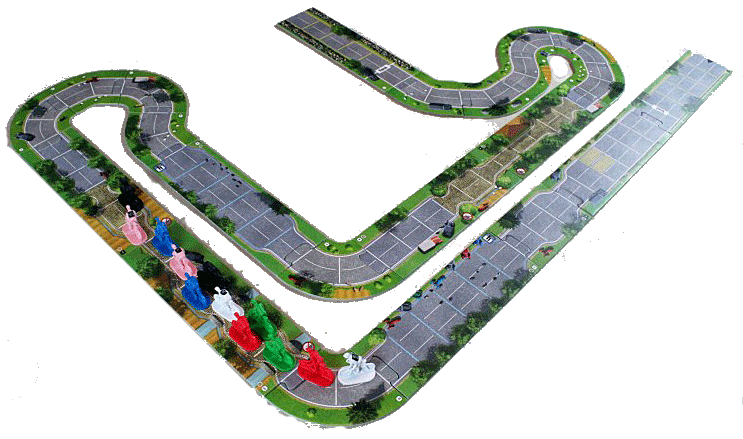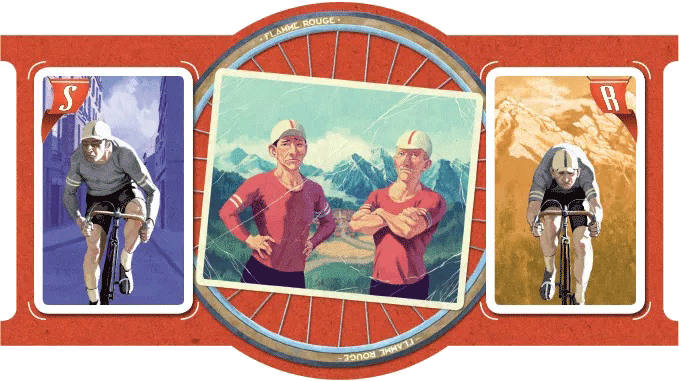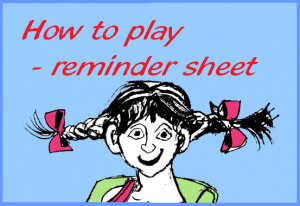
Flamme Rouge is a good fun game without too much grey-matter demand, devised by Asger Harding Granerud, from Finland. It’s based on a very cut and thrust sport, which is cycle racing.
The base game is for up to four players, and the Peloton expansion makes it available to six.
It’s not difficult to follow the rules and actions, which are very nicely presented on just a few sides. For newcomers especially, though, the reminder leaflet above can be printed off for each player, giving them a something to hold in hand and check out what they might want to do.

Each player takes control of a pair of Tour de France cyclists, and seeks to get them across the line first. One rider is a sprinter, who can burst with energy at the right time. The other is what’s called a rouleur – good at keeping up a steady, powerful pace.
The segments of track along which they’ll race can be put together to form different routes, and the game includes many that reflect some real stages in the Tour.
The way that riders move, and the way that competing cyclists interact is controlled by simple procedures. But that shouldn’t lull players into thinking that it’s going to be simple job to get across the finish line first.
Each turn, players choose which energy cards to alot to each of their riders.
Sprinter and rouleur move separately,
and may become separated during the race.
As the packs of riders move forward, some may force ahead of the rest. But those behind may be able to use the slipstream that’s created, and hang on tight.
They may be shifty cyclists, and ride in the slipstream created by others, using less energy to stay in the race, whilst those in front do the work.
It’s all very well getting some space between yourself and others, but too much empty space ahead of you may call for more effort, and that risks exhaustion.
Exhaustion can become a bit of a handicap as the race goes on,
possibly holding riders back as they get closer to the finish.

So, as the packs move forward, riders are constantly confronted by question like …
► shall I go for a sprint now, or leave it to later
► do I want to keep my two riders together, and try to get them in a position to help each other
► do I want to risk allowing followers to slipstream – I do the work, they take the benefit
The game can be a thrill !
- a not-complex game – and good fun
- nice playing pieces, cards, and player-help reminders
- well within reach of ordinary, day-to-day casual players, but it’s beloved by keen cyclists
- when to do what is not always obvious
- strategic thinking (probably) develops with play
- low level of luck is involved, and players’ actions and decisions count most

